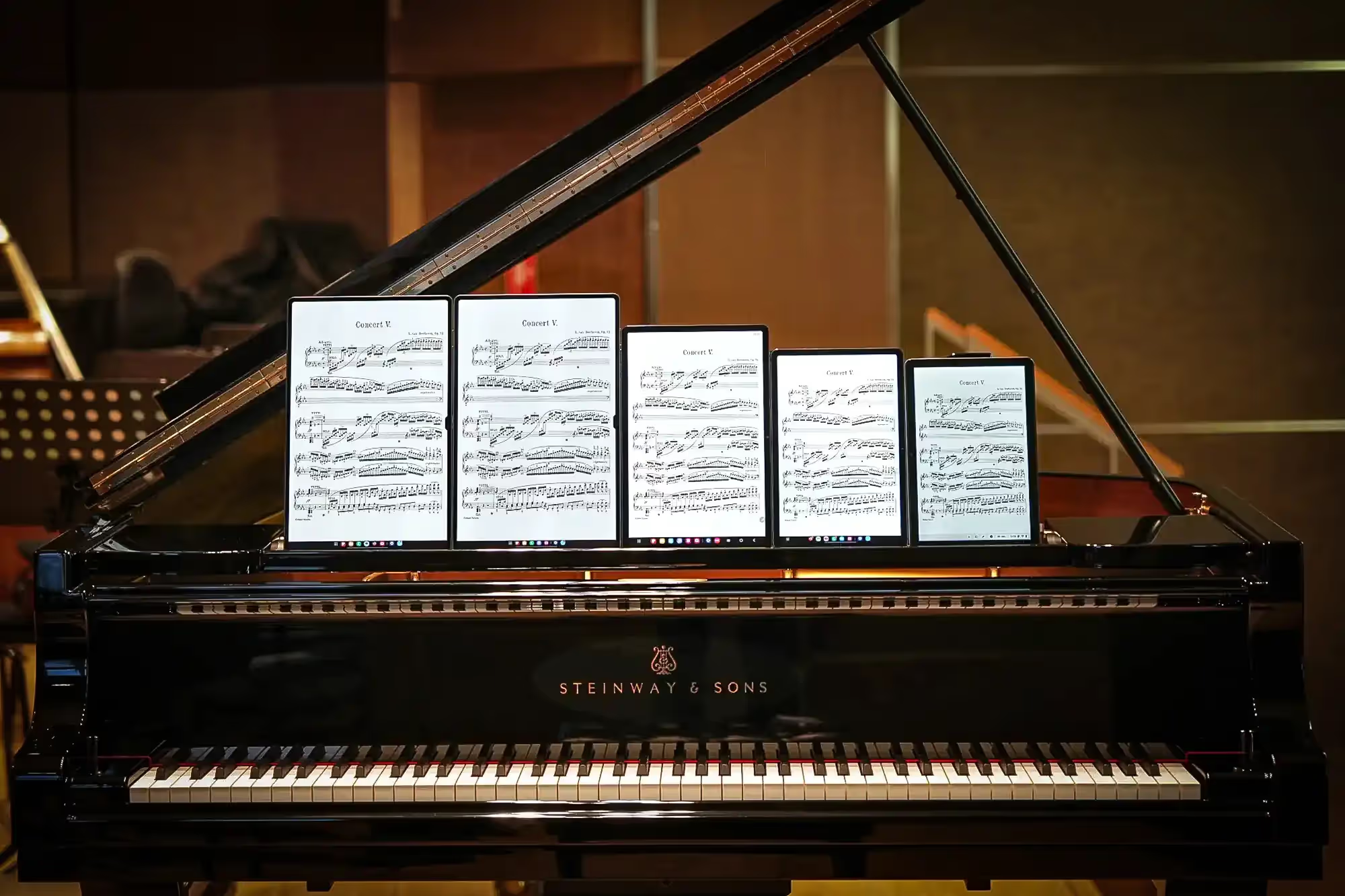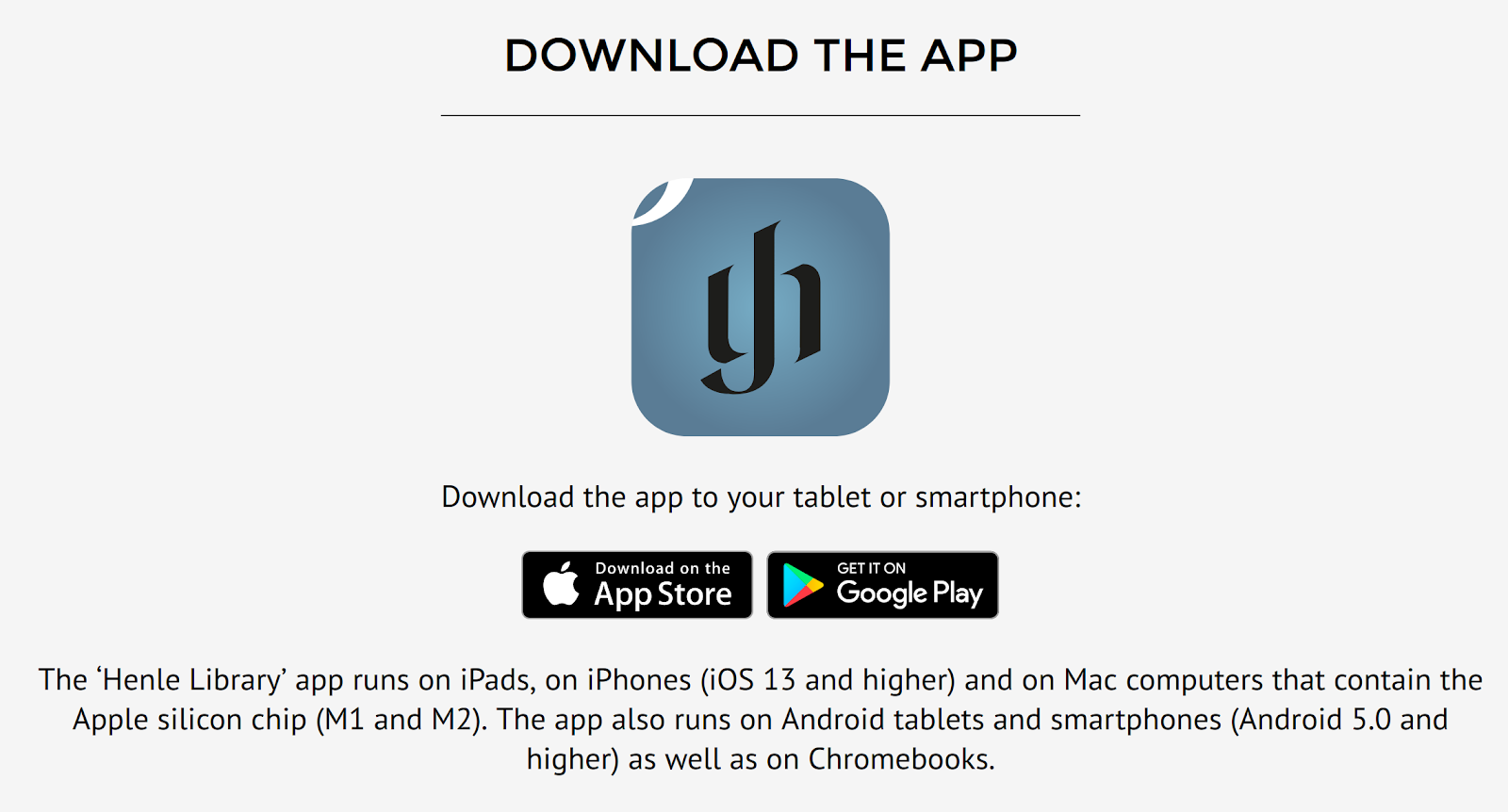Using an Android tablet as a musician

If you’re reading this article, there’s a chance that you’re a musician and already have an Android tablet lying around, or you’re not a fan of Apple’s “walled garden” ecosystem. Either way, you’re in the right place to learn about using an Android tablet for reading sheet music and practicing as a musician. I have used a Galaxy Tab S9 Ultra for the last 2.5 years. This article will detail my experience so far with both the hardware and software, as well as my recommendations.
The Galaxy Tab S9 Ultra’s screen is HUGE (14.6”). This might seem great for displaying sheet music and it is, but the 16:10 ratio makes the tablet taller, but thinner than an A4 page. Therefore, you don’t end up with much more, or sometimes even less usable space.
I find Android simply nicer to use than iPadOS. I appreciate the numerous customization features and simple things like sideloading, which cannot be taken for granted on other OSes.
Many (or dare I say most) of the professional sheet music readers simply do not support android. You might immediately think of jumping to alternatives (which exist), but this is quite a sizable problem that cannot be overcome, as it is solely based on the app developers.
*This is not quite so simple. Read on for more info.
There are definitely plenty more iOS/iPadOS-exclusive sheet music readers that I forgot about; I think the table above illustrates my point pretty well.
So far, I’ve tried all three apps marked as supported from the table above, with the best experience by far being with MobileSheets Pro. It’s reliable, hasn’t crashed once, which is of utmost importance for someone who uses the tablet during live performances. However, the user interface is extremely outdated and not user friendly, with a lot of useful settings hidden in unexpected places.
As a pianist, I often opt for Henle for their high-quality scores from numerous composers. I was very happy to see that the Henle Library app supported Android, as I’ve seen my teacher use it, and it seemed like an amazing tool for someone who heavily relies on Henle scores. However, I quickly encountered numerous road blocking issues that make the app unusable on Android.
First of all, there is no way to annotate the whole page at once. This means there is no way to view the whole page while annotating; you have to be terribly zoomed in on a staff. This is completely ridiculous. I found many tutorials (notably official ones online) that used full-page annotations, which is why I was even more confused when I discovered that I couldn’t replicate them. I promptly emailed Henle Library support only to get such a reply:
[...]
And unfortunately there are still significant differences between the Android and IOS versions of our app. In the video you are referring to, we show the IOS version, in which a full-page view in annotation mode is possible. The fact that the Android version is a little less convenient is mainly because programming is much more difficult (for example, we commissioned our developers years ago to enable a double-page view - which has not yet been achieved). Of course, we will continue to work on further developing the Android version. But until then, we can only ask for your understanding.
[...]
I couldn’t find any official disclosure on the app’s download page about the differences on the “supported” platforms.

The lack of such a basic feature along with a multiple other bugs related to annotations, annotation layers and cloud storage, I can’t use the app for my purposes, so now I only use it as a convenient (and faster) way of obtaining Henle scores, but I only read and annotate the from the exported PDF in MobileSheets.
Musicnotes is a great service with tons of arrangements of popular songs. However, the Android app is abysmally slow, crashes all the time, and is completely unusable for any serious work. Now, I have never used the iOS/iPadOS app, so I can’t vouch for its quality, but I wouldn’t be surprised if this was another case of the Android app being neglected.
Android being treated as a 2nd class citizen (at best) is a very common theme among professional apps, including sheet music readers.
As much as I appreciate Android as an operating system and vouch for its use on mobile, if you’re a musician and need to use your device professionally or simply value reliability, buy the iPad. For now, that’s the sad truth. I truly hope the Android sheet music reader ecosystem will improve one day, but that day isn’t today or likely not tomorrow.